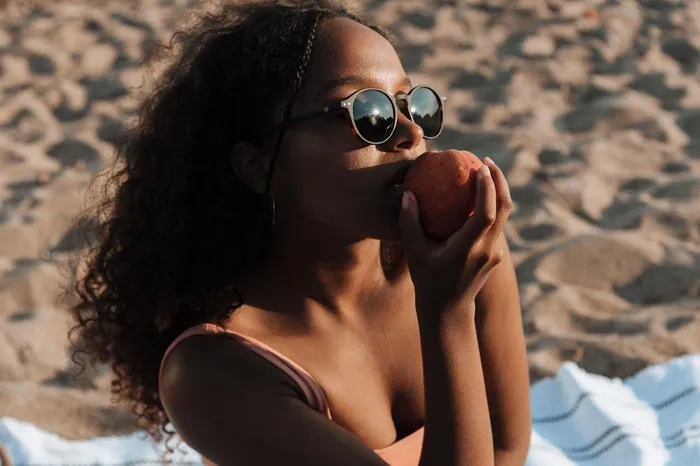
Aim for six servings of vibrant fruits and vegetables daily.
Image: Ron Lach/pexels
People don't diet on vacation because food is central to experiencing local culture, and vacations are a time to relax and indulge, making it difficult to maintain strict dietary habits due to restaurant portions, rich ingredients, and travel-related factors like alcohol consumption and limited healthy options.
The break from routine can also disrupt eating patterns, leading to unconscious snacking or overeating.
To enjoy local culture without overindulging, consider shared dining experiences, such as ordering several dishes for the group to taste and share.
Prioritising dishes abundant in vegetables can also help manage indulgence while savouring local flavours. That post-vacation “glow” often comes with an uninvited guest: inflammation.
Think bloating, fatigue, cramps, or even a flare-up of old aches. You don’t have to give up indulgence to feel good. Experts say striking a balance is the secret.
“Adopting a few anti-inflammatory habits during vacation is a simple way of preserving the body’s balance while making the most of the season,” Paris-based naturopath Julie Pradines told "Vogue".
She specialises in chronic digestive disorders and inflammatory diseases, and believes that even small tweaks help protect long-term health.

With mindfulness in our choices, we can cherish our indulgences while safeguarding our long-term health.
Image: Maksim Goncharenok/pexels
What is inflammation?
Inflammation itself isn’t the enemy; it's actually the body’s natural response to stress, infection, or injury. If you cut your finger, swelling and redness are signs that your body is healing.
That’s acute inflammation. The problem begins when inflammation lingers, which is referred to as chronic inflammation, a silent, low-grade state that can last months or years has been linked to conditions like:
Increasingly, chronic inflammation is recognised as a contributing factor to many imbalances, digestive disorders, brain fatigue, skin conditions, and weakened immune systems.
Vacations, with their disrupted routines and indulgent menus, can make things worse.

The key lies in simple, mindful choices that ensure your holiday is a restorative experience, leaving behind the weight of inflammation.
Image: KoolShooters /Pexels
What fuels inflammation?
Not everything is within our control; pollution, allergens, or viral infections can play a role, but lifestyle choices matter most.
Studies from "Harvard Health" suggest the foods we eat daily have one of the biggest impacts on inflammation levels. Unhealthy fats, processed foods, and excess sugar not only cause weight gain (a known risk factor) but also independently trigger inflammation in the body.
Other lifestyle triggers include:
The anti-inflammatory diet: Doctors now agree that “one of the best ways to reduce inflammation lies not in the medicine cabinet, but in the refrigerator,” according to "Harvard Health".
The Mediterranean diet, rich in fruits, vegetables, whole grains, fish, and healthy oils, consistently ranks as the gold standard for lowering inflammation. Think less about restriction and more about nourishment.
Brightly colored vegetables, omega-3 fats from fish or flaxseeds, and spices like turmeric and ginger all act like fire extinguishers for the body.5 easy anti-inflammatory habits for your next vacation
In the end, vacation is for enjoyment, and saying no to gelato on a cobblestoned street in Rome isn’t realistic.
Overindulgence happens, and that’s okay. If you find yourself bloated or sluggish after a splashy meal, hydration, herbal teas (like ginger or peppermint), and gentle movement can ease discomfort.
The key isn’t perfection. Its balance. Think of these habits as tools in your back pocket. ways to enjoy the fun without the fallout.
Vacations should leave us feeling restored, not inflamed. Chronic inflammation is a slow burn that chips away at long-term health, but small, mindful choices can protect us without stealing the joy of holiday indulgence.